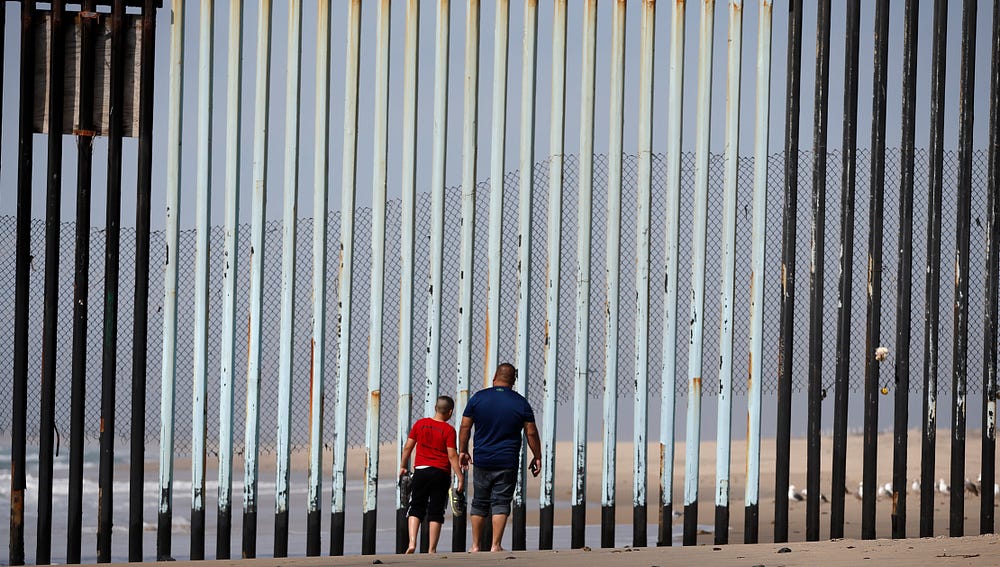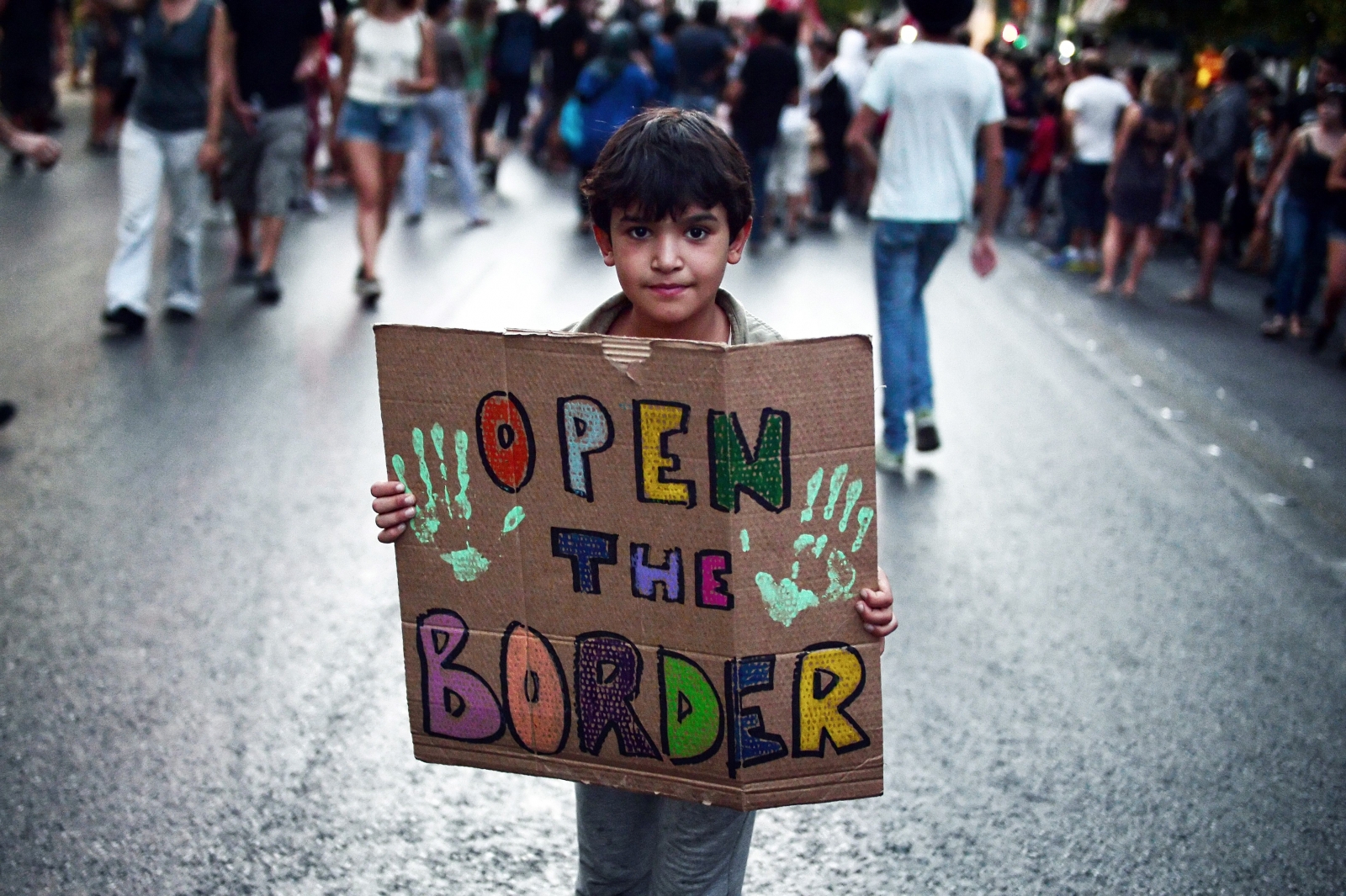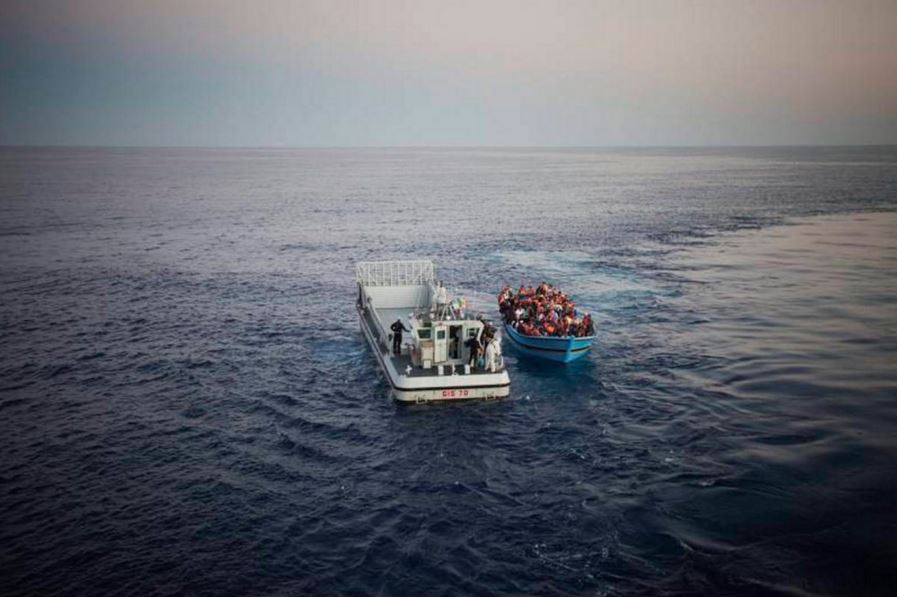The global far right is tightening borders everywhere.
 |
| Two people walk towards metal bars marking the United States border where it meets the Pacific Ocean Wednesday, March 2, 2016, in Tijuana, Mexico. CREDIT: AP Photo/Gregory Bull
ThinkProgress
|
By E.A. Crunden, Esther Lee, and Justin Salhani
2016 was not a fun year. And if there is one symbol that sums it all up, it’s the wall.
Border walls certainly took a center stage in the U.S. presidential election. President-elect Donald Trump proposed the creation of a barrier wall along the U.S.-Mexico border in his very first speech as a presidential candidate. Since then, he has come back to that theme again and again and again.
Countries around the world have built more and more border walls since the end of the Cold War, especially in the last decade. One 2015 study found that of the 51 physical barriers built along borders since the end of World War II, approximately half were built between 2000 and 2014 alone. And the world’s interest in walls certainly hasn’t diminished over the past year. Instead, the global far right has only intensified its push for more border barriers.
From Mexico to Hungary to India, here are some of the walls that worried us in 2016 — and which we’ll be keeping an eye on next year.
A “big beautiful wall” along the U.S. — Mexico border
President-elect Donald Trump has repeatedly made a campaign promise to build out the border barrier between the United States and Mexico. His plan for the construction of a border wall, which he insists Mexico will pay for despite Mexican President Peña Nieto saying otherwise, would include some fencing along the 1,933 mile long shared border and an increased law enforcement presence to prevent irregular migration.
“We will build a great wall along the southern border,” Trump said during a rally in Phoenix in September. “And Mexico will pay for the wall,” adding that the wall would be “impenetrable, physical, tall, powerful, beautiful.”





